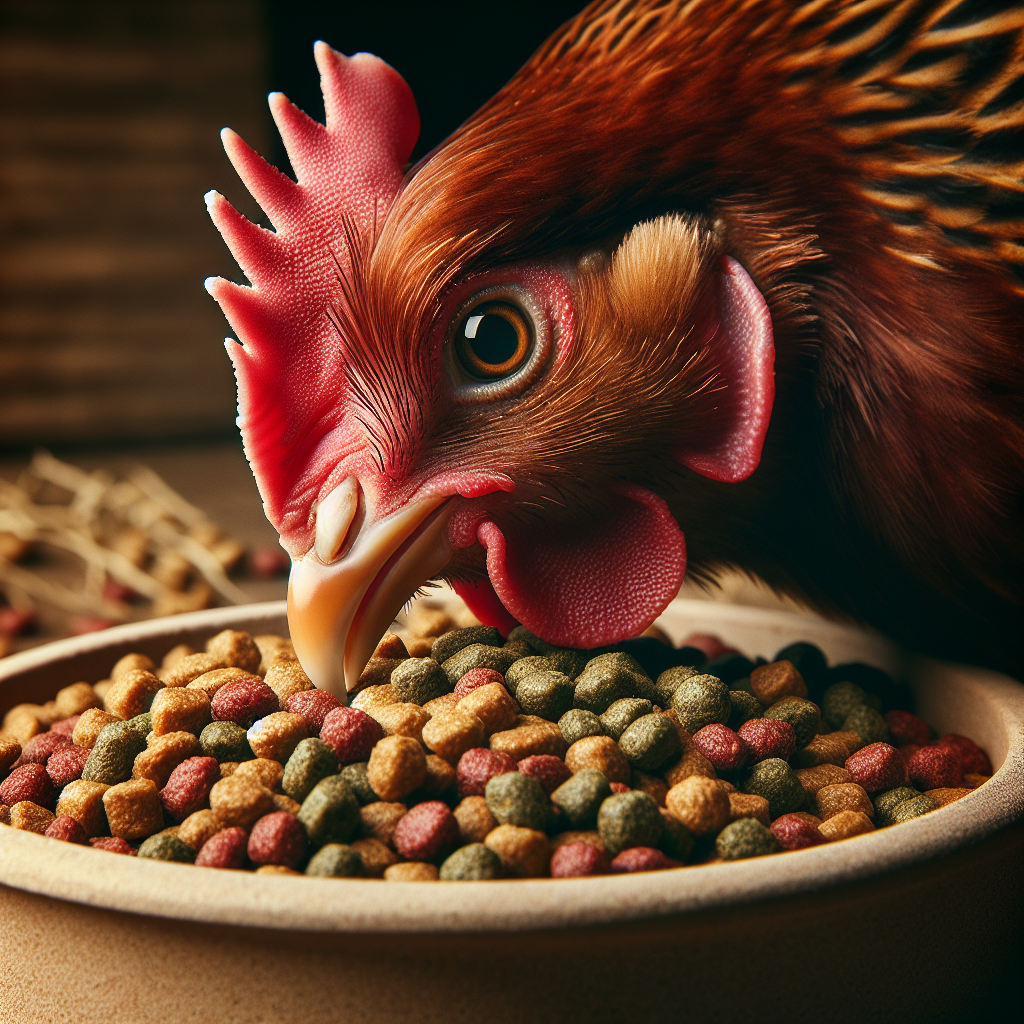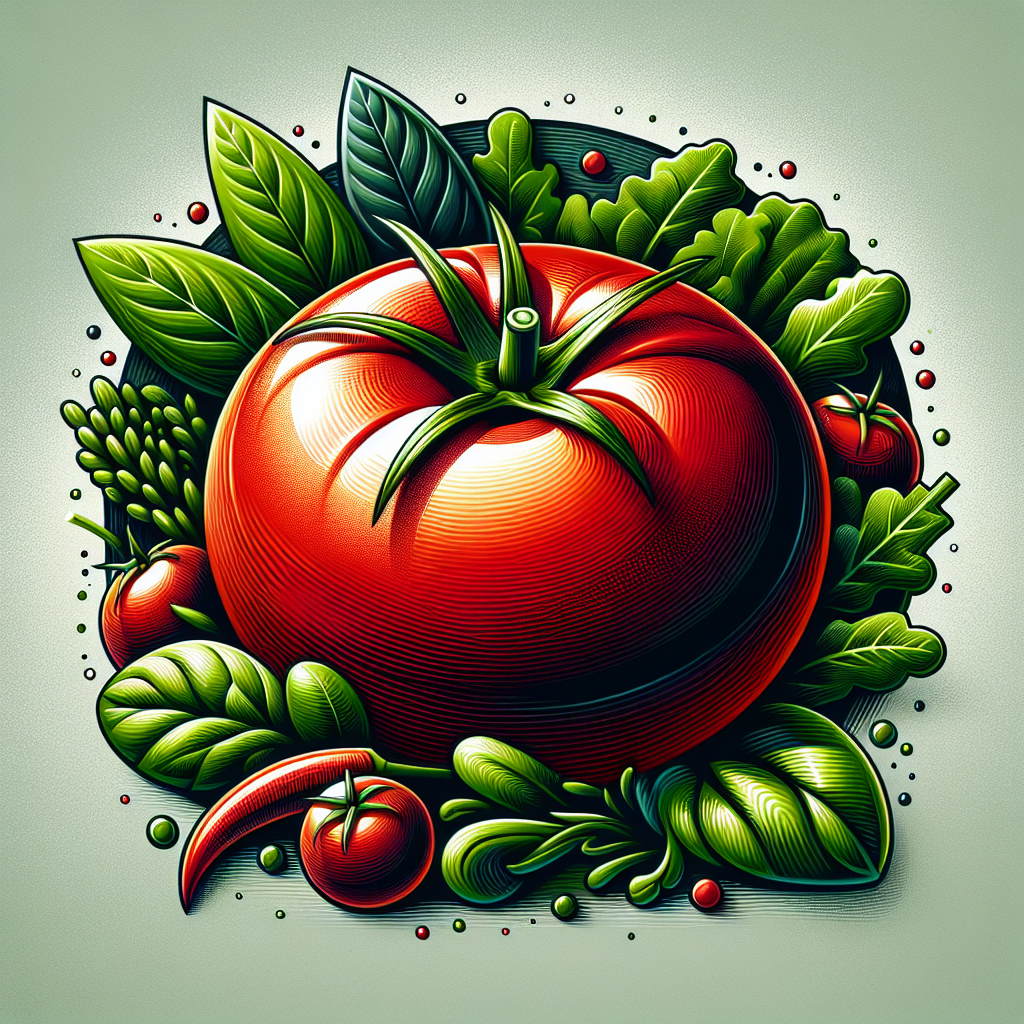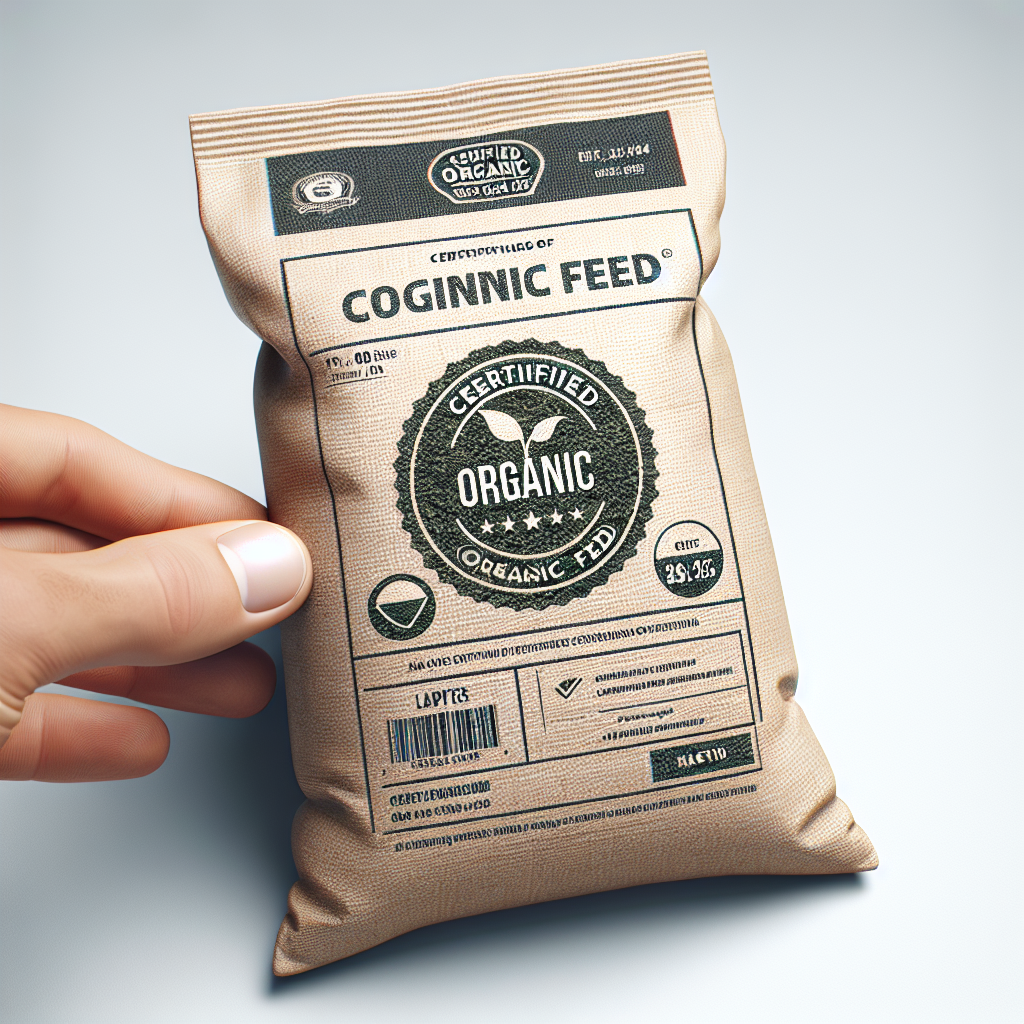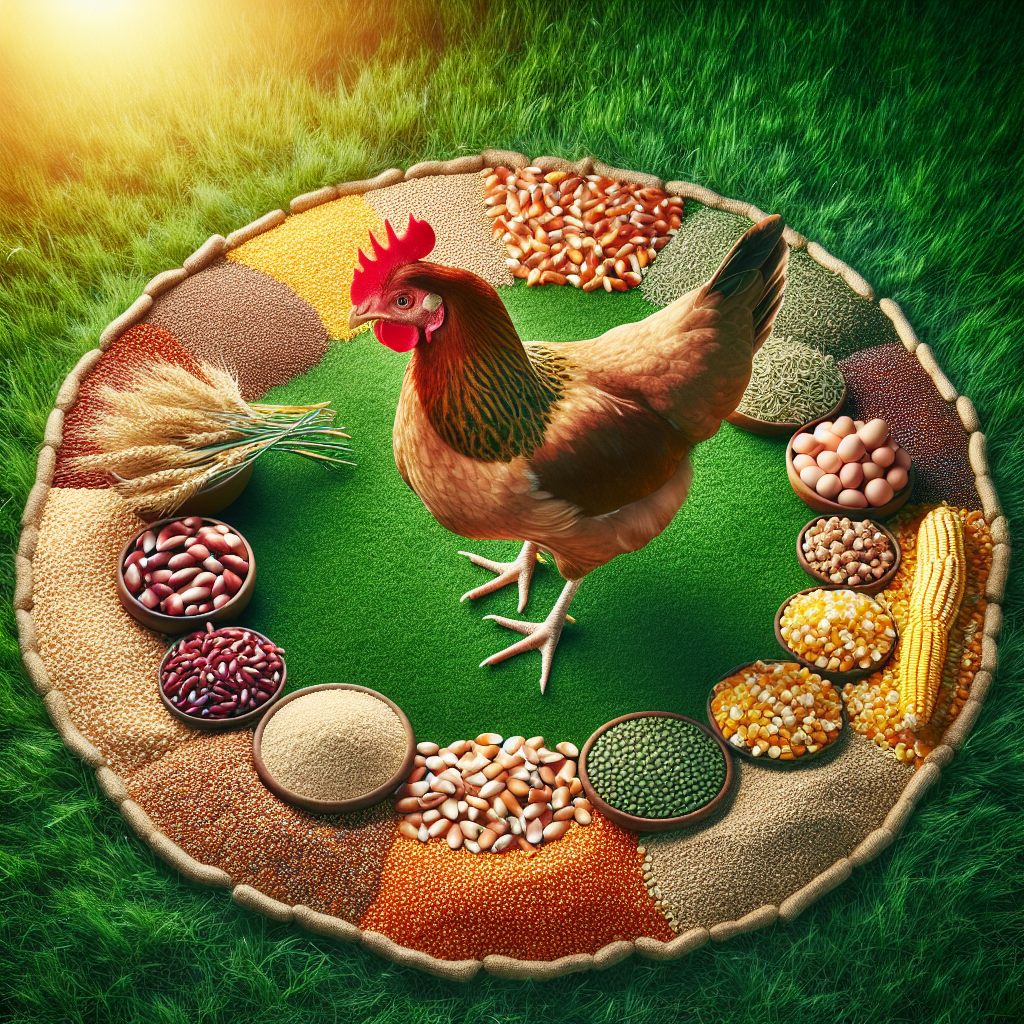When it comes to feeding your chickens, making sure they receive the best quality food is essential for their health and well-being. But with so many options available, it can be overwhelming to know which organic chicken feed to choose. That’s why you might be wondering if there are any certifications or labels you should look for when purchasing organic chicken feed. In this article, we’ll explore the importance of certifications and labels in ensuring the quality and authenticity of organic chicken feed, providing you with the necessary information to make an informed decision for your feathered friends.
USDA Organic Certification
What is USDA Organic Certification?
USDA Organic Certification is a certification program established by the United States Department of Agriculture (USDA) that ensures agricultural products, including chicken feed, are produced and handled according to strict organic standards. This certification guarantees that the feed is made from ingredients that have been grown and processed without the use of synthetic fertilizers, pesticides, genetically modified organisms (GMOs), or other prohibited substances.
How is USDA Organic Certification obtained?
To obtain USDA Organic Certification, the chicken feed must be sourced from farms that follow organic farming practices and meet the USDA’s stringent standards. These standards regulate various aspects of feed production, including sourcing of ingredients, processing methods, and record-keeping. Feed manufacturers must undergo third-party inspections and maintain detailed documentation demonstrating compliance with these standards before they can be certified as USDA Organic.
What are the requirements for USDA Organic Certification?
The requirements for USDA Organic Certification are comprehensive and cover every stage of feed production. Some of the key requirements include:
- The feed must contain at least 95% organic ingredients.
- Synthetic pesticides, fertilizers, and GMOs are strictly prohibited.
- Livestock used for feed production must be raised in accordance with organic animal welfare standards.
- Adequate record-keeping and documentation of all aspects of feed production, from ingredient sourcing to manufacturing processes.
Benefits of choosing feed with USDA Organic Certification
Choosing chicken feed with USDA Organic Certification offers several benefits. Firstly, it ensures that the feed is free from potentially harmful synthetic chemicals, GMOs, and other prohibited substances. Feeding organic feed to chickens helps maintain their overall health and wellbeing, reducing the risk of exposure to toxins. Organic feed may also have higher nutrient levels, potentially enhancing the nutritional value of the eggs and meat produced by the chickens. Additionally, by supporting organic farming practices, consumers contribute to the preservation of soil health, biodiversity, and the overall sustainability of the agricultural system.
Non-GMO Project Verified
What does Non-GMO Project Verified mean?
Non-GMO Project Verified is a certification program that guarantees that the feed or any product carrying this label does not contain any genetically modified organisms (GMOs). The Non-GMO Project is an independent, non-profit organization that provides third-party verification and labeling for non-GMO products.
How is Non-GMO Project Verified different from organic certification?
While USDA Organic Certification addresses various aspects of organic production, including GMOs, Non-GMO Project Verification specifically focuses on the absence of GMOs. Organic certification ensures that the feed is free from synthetic pesticides, fertilizers, and GMOs, while Non-GMO Project Verification solely certifies that the feed has been tested and confirmed to be free from GMOs. It is worth noting that feed with Non-GMO Project Verification may not necessarily be organic unless it also carries the USDA Organic Certification.
Benefits of choosing feed with Non-GMO Project Verified label
Opting for feed with the Non-GMO Project Verified label provides the assurance that the feed does not contain GMOs. Some consumers prefer to avoid GMOs due to concerns about potential health risks or environmental impact. By selecting Non-GMO Project Verified feed, chicken owners can have peace of mind knowing that the feed they provide to their flock is free from genetically modified ingredients.
Certified Organic by Other Accredited Organizations
Accredited organizations for organic certification
In addition to USDA Organic Certification, there are other accredited organizations that provide certification for organic products. Some notable organizations include the Canadian Organic Certification, Naturland Organic Certification (Germany), and Soil Association Certification (United Kingdom), among others. These organizations have their own standards and certification processes, which are recognized globally and ensure the organic integrity of the feed.
How to identify certified organic feed from other accredited organizations
To identify feed certified by other accredited organizations, look for their specific certification labels on the packaging. These labels indicate that the feed has met the organic standards set by the respective organization. In some cases, an additional certification mark from the USDA or the European Union may be present, providing further assurance of compliance with international organic standards.
Benefits and credibility of certified organic feed from other accredited organizations
Choosing feed certified by other accredited organizations offers several benefits. It allows consumers to support organic farming practices outside the United States and ensures the compliance of feed with recognized international organic standards. This certification provides credibility and transparency to the feed’s organic claims, allowing chicken owners to make informed decisions about the feed they purchase for their flock.
Certified Humane
What is Certified Humane labeling?
Certified Humane labeling is a certification program developed by the nonprofit organization Humane Farm Animal Care (HFAC). This certification assures consumers that the feed or any product carrying the label meets specific animal welfare standards established by HFAC.
How does Certified Humane certification ensure animal welfare?
Certified Humane certification sets strict guidelines for animal welfare, including feeding practices. Feed with this label ensures that the ingredients come from sources that prioritize the well-being of the animals. This certification prohibits the use of controversial practices such as battery cages for hens or the use of hormones and subtherapeutic antibiotics in feed formulation. The focus is on providing animals with adequate space, access to fresh air and clean water, and a diet that promotes their natural behaviors.
Benefits of choosing feed with Certified Humane label
Selecting feed with the Certified Humane label demonstrates a commitment to supporting responsible animal welfare practices. Feeding chickens with Certified Humane feed helps contribute to a more compassionate and ethical treatment of animals. It also signals to consumers that the feed has been produced with a high level of integrity, ensuring that the ingredients used meet rigorous animal welfare standards.
Grain-Free or Soy-Free Certification
What are grain-free and soy-free certifications?
Grain-free and soy-free certifications indicate that the chicken feed does not contain any grains or soybeans, respectively. These certifications provide assurance to consumers who prefer alternative feed options for their chickens due to dietary restrictions, allergies, or personal beliefs.
Why do some consumers look for grain-free or soy-free feed?
Some consumers choose to feed their chickens grain-free or soy-free diets due to various reasons. Grain-free feed may be desired to alleviate potential food sensitivities or digestive issues in chickens. Similarly, soy-free feed can be preferred if chickens are allergic to soy or if chicken owners prefer to avoid soy products for personal reasons. By catering to these dietary preferences, grain-free or soy-free certified feed provides options for those seeking specialized feeding alternatives for their flock.
Choosing certified grain-free or soy-free feed
When looking for certified grain-free or soy-free feed, check for the appropriate certification label on the packaging. These labels indicate that the feed has been manufactured without grains or soybeans. Make sure to carefully read the ingredients list to ensure the feed aligns with any specific dietary requirements or restrictions for your chickens.
Verified Sustainable
What does Verified Sustainable mean?
Verified Sustainable refers to a certification or label that indicates the feed has been produced using sustainable practices. This certification covers various aspects of feed production, including sourcing of raw materials, energy usage, waste management, and environmental impact.
Sustainable feed production practices
Sustainable feed production practices encompass a wide range of initiatives, such as using renewable energy sources, reducing greenhouse gas emissions, minimizing water usage, and promoting biodiversity on farms. These practices aim to minimize the environmental impact of feed production and contribute to the long-term sustainability of the agricultural industry.
Benefits of choosing verified sustainable feed
Choosing feed with verified sustainable certification provides the assurance that the feed has been produced with consideration for the environment and the overall sustainability of the chicken farming system. By supporting sustainable feed production practices, chicken owners can contribute to the preservation of natural resources and reduce their ecological footprint. Additionally, supporting sustainable feed production promotes responsible stewardship of the land and helps protect biodiversity, ensuring a healthier planet for future generations.
Certified Organic by European Standards
European standards for organic certification
European standards for organic certification are established by the European Union (EU) and are recognized internationally. These standards closely align with the principles of USDA Organic Certification and ensure that organic feed produced in European countries meets strict regulations regarding ingredient sourcing, processing methods, and other aspects of production.
Comparison with USDA Organic Certification
While the European standards for organic certification are similar to USDA Organic Certification, there are some slight differences. For example, the European standards may have specific requirements regarding animal welfare and the use of feed additives. However, both certifications share the common goal of ensuring that organic feed is produced without synthetic chemicals, GMOs, and other prohibited substances.
Choosing feed certified by European standards
If you are interested in purchasing feed certified by European standards, look for the specific European organic certification labels on the packaging. These labels indicate that the feed has met the organic standards set by the European Union and can provide an additional level of trust and confidence in the feed’s organic claims.
Organic Feed Mill Certification
Importance of organic feed mills
Organic feed mills play a critical role in the production of organic chicken feed. These facilities are responsible for sourcing organic ingredients, manufacturing the feed, and ensuring compliance with organic standards throughout the production process. Organic feed mills must meet specific requirements and undergo certification to maintain the organic integrity of the feed they produce.
Certification process for organic feed mills
To obtain organic feed mill certification, facilities must adhere to strict guidelines established by the certifying organization. This includes sourcing organic ingredients, preventing contamination from non-organic materials, maintaining detailed records, and conducting regular inspections. Independent third-party certification agencies verify that the feed mill meets all the necessary requirements before granting the organic feed mill certification.
Advantages of purchasing feed from certified organic feed mills
Purchasing feed from certified organic feed mills offers several advantages. Firstly, it ensures that the feed has been produced in a facility that follows organic standards throughout the manufacturing process. This guarantees the integrity of the feed’s organic claims and provides peace of mind to consumers. Additionally, certified organic feed mills have robust quality control measures in place, ensuring consistent and reliable feed formulations that meet the nutritional needs of chickens. Supporting certified organic feed mills also contributes to the growth and sustainability of the organic farming industry.
Eco-Friendly or Sustainable Packaging
Packaging and its impact on sustainability
Packaging plays a significant role in the sustainability of chicken feed products. Traditional packaging materials, such as plastic, can have adverse environmental impacts, including increased waste and pollution. Sustainable packaging aims to minimize these negative effects by using materials that are recyclable, compostable, or made from renewable resources.
Certifications or labels for eco-friendly packaging
Several certifications and labels indicate that the packaging used for chicken feed is eco-friendly or sustainable. These certifications include the Forest Stewardship Council (FSC) certification, which ensures that the packaging materials are sourced from responsibly managed forests, and the Biodegradable Products Institute (BPI) certification, which guarantees that the packaging is compostable. Look for these certifications or labels on the packaging to identify feed with eco-friendly or sustainable packaging.
Choosing feed with eco-friendly or sustainable packaging
When selecting chicken feed, consider choosing products that prioritize eco-friendly or sustainable packaging. By opting for feed packaged in materials that are recyclable or compostable, you can reduce your environmental footprint and promote responsible waste management. Additionally, supporting companies that invest in sustainable packaging encourages the adoption of more environmentally friendly practices throughout the industry.
Price Considerations
Factors affecting the price of organic chicken feed
Several factors contribute to the pricing of organic chicken feed. These factors include the cost of organic ingredients, which may be higher than conventional counterparts due to limited supply and higher production costs. Additional expenses, such as certification fees and compliance with organic standards, contribute to the overall cost. The type and scale of the feed manufacturing facility and transportation costs may also impact the price.
Balancing certifications and budget
When considering the purchase of organic chicken feed, it is essential to find a balance between the desired certifications and your budget. Different certifications have varying costs associated with certification processes and ongoing compliance. Evaluate the specific needs and priorities of your flock to determine which certifications are most relevant and align with your budgetary constraints.
Finding a balance between affordability and quality
While organic chicken feed with various certifications may come at a higher price point compared to conventional feed, it is essential to consider the long-term benefits. The superior quality and nutritional value of organic feed may contribute to healthier chickens, potentially reducing veterinary costs and enhancing the overall productivity of your flock. By finding a balance between affordability and quality, you can make informed purchasing decisions that best suit the needs of your chickens and your budget.
In conclusion, when purchasing organic chicken feed, it is advisable to consider the different certifications and labels available to ensure the feed meets specific criteria. USDA Organic Certification guarantees adherence to strict organic standards, while Non-GMO Project Verification certifies the absence of genetically modified ingredients. Other accredited organizations provide alternative organic certifications, such as the European standards, which may offer additional choices. Certified Humane, grain-free or soy-free, verified sustainable, eco-friendly packaging, and organic feed mill certifications address specific concerns and preferences. By considering these certifications and labels, chicken owners can make informed choices that align with their ethical and environmental values while providing high-quality feed for their flock. Balancing certifications with budgetary considerations ensures a sustainable and responsible approach to chicken feed selection.




